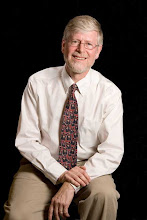Here's an interview I did recently with the DeKalb Daily Chronicle's weekly entertainment magazine, Take One. I was promoting "The Throne of Tara" in local bookstores and speaking about my new project, writing a mystery series.
Q: You've been writing historical novels but are now turning toward mysteries. What makes a person want to experience a mystery? As more things become known in the world (say, the composition of Saturn's rings), does the hunger for mystery grow or lessen?
A: Mysteries - classic murder mysteries, I mean - connect with something deep inside us. They are the modern form of the medieval morality play, where the sleuth is Everyman who works against time, big money, a determined antagonist, daunting odds and his own flaws to expose evil and to restore the balance of justice. At the end, readers who identify with the successful hero or heroine feel a little better about the world and about themselves. A critic might say that mystery novels are escapist, since they offer a fantasy word in which justice prevails, right always wins over wrong, and love finds a way. But mysteries, close as they are to the barest human motives and fears, and because they deal so openly with death, have a built-in opportunity to explore life's higher mysteries - both seen and unseen. There will always be a hunger for that. As Aristotle says (and he's a character of sorts in my first mystery), the desire to know is the central drive in all humans.
Q: Writing is such a personal activity. Even with your background in teaching, is it hard to guide someone in how to write? What's the biggest obstacle in those lessons?
A: I like your term "guide" because that is about all you can do. You can show the way, point out features along the path, and explain how some things work. You can't teach desire and discipline, the two most important factors. A writer must have them already. Techniques can be acquired by imitation, experimentation, and habit. But what's really needed is vision, and, as Aristotle might add, a touch of madness.
Q: Your blog uses the name Johnny Dangerous. What makes you so dangerous?
A: My last name can be difficult to pronounce, so my colleagues had a little fun with it. I suppose it suits me, as I dare to interogate the prevailing postmodern dogmas of absolute uncertainty. As Aristotle says, there is truth outside our own subjective persceptions that can be known, if only imperfectly (or as St. Paul might say, "through a glass darkly"), and as Aquinas and Wittgenstein suggest, sometimes we must be told what it is by Someone from the outside.
Q: Your books combine history, religion, and mystery. When you look at the success of Dan Brown's "The DaVinci Code," what do you feel?
A: There's hope for any writer, even for work that is poorly written, badly researched, and built on a spurious premise. But seriously, this reminds us that stories have the power to shape perception. That's why it's important to deal honestly with the material. It's fiction, but we must try to deal with what IS. Serious fiction - even seriously written 'genre' fiction - is interested in the truth, especially in the truth of what it means to be fully human in both our dignity and our fallenness.
Q: The name of a character, especially the one who might be the lead in a series of books, can be quite important. Where did the inspiration for Reed Stubblefield come from?
A: Illinois cornfields at harvest time. On the rural drive to my college, I pass miles of stubbled fields full of shaven stalks, and the brittle, vulnerable remains reminded me of that line in Isaiah 42, "He will not break a crushed reed, or snuff out a smoldering wick; unfailingly He will establish justice." Reed is wounded in body, heart, and spirit, and he slowly, reluctantly recognizes the presence of grace in a story about justice and the possiblity of loving again after a major loss.
Q: Your second mystery, in progress, is set in the same location but features a Latina character, Selena de la Cruz, as the protagonist. Where did she come from?
A: Writers are often cautioned about allowing an intriguing minor character to run away with the story. As soon as she walked on the stage of the first novel, even in a small part,I knew she had a story of her own.
Q: Given your journalism background, have you ever considered the nonfiction realm of writing?
A: I've done some freelance magazine work and publish an essay now and then. But telling all the truth but telling it slant, as Emily Dickinson said, is much more fun.
Q: How many false starts, flame outs, and other aborted attempts currently reside in the dark recesses of your desk?
A: I've had my share. There is a sprawling historical novel set in the Roman Empire of the early 400s smoldering in my cabinet, a prequel to "The Throne of Tara" that is based largely on the life of Saint Patrick. I'm focused on the mysteries for now, but at times I still hear the thunder of hooves, the ring of steel on steel, the chant of monks and the crackle of Druids' fires coming from behind the doors.
Thursday, May 22, 2008
Subscribe to:
Post Comments (Atom)


1 comment:
A fun read--thanks for sharing.
Speaking of "read," Reed Stubblefield? :-) I like it! It's great to see the gears grinding behind the concept.
Is there a title to your first book in the series? Is this the one you sent off to your publisher already or is that some other I'm thinking about? Have you ever heard back about that one?
Oh no! Dan Brown appeared! Love your retort.
Post a Comment